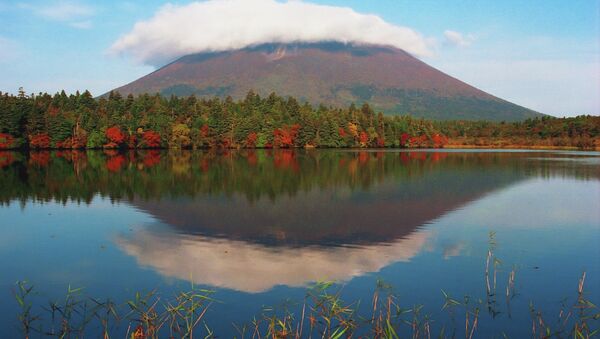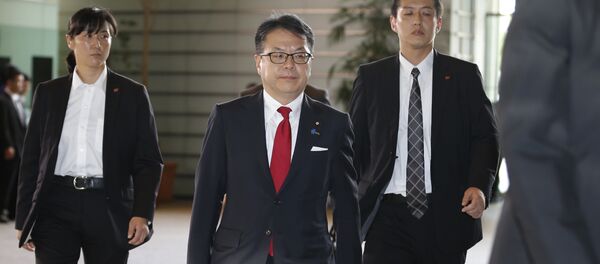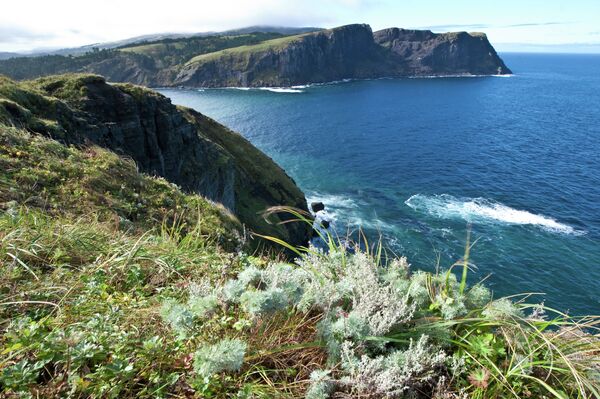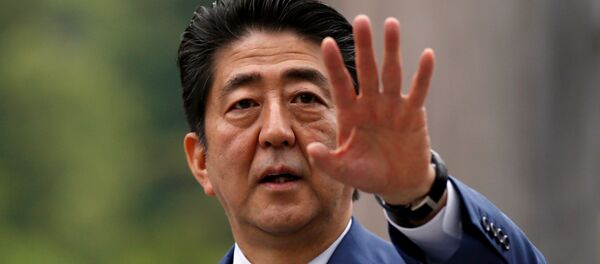Both leaders highlighted the need to lay the dispute to rest. Putin said that "we can't let the chances that we have slide by," while Abe urged both nations "to build a new era in Russia-Japan ties that will last the next 70 years."
Russian and Japanese officials have been vague on the details of a possible deal on the Kuril Islands, but handing them over to Tokyo seems to be out of the question. On Friday, John Micklethwait asked Putin whether Moscow could give up one of the islands in exchange for greater economic cooperation.
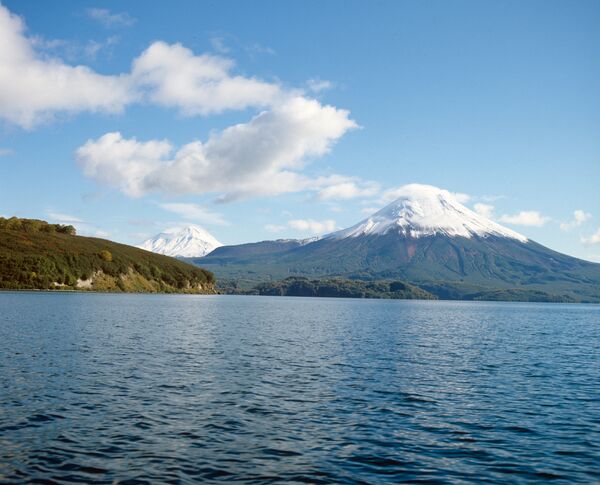
"We do not trade territories although concluding a peace treaty with Japan is certainly a key issue and we would like to find a solution to this problem together with our Japanese friends," the Russian leader responded.Putin also added that the current round of talks is meant to "search for a solution when neither party would be at a disadvantage, when neither party would perceive itself as conquered or defeated."
Japan is ready to search for common ground, Professor Kazuhiko Togo of the Kyoto University told the Vzglyad newspaper. "I feel that [Shinzo Abe] is ready for a certain compromise," he said.
Former Russian Ambassador to Japan Alexander Panov echoed these sentiments.
"When Shinzo Abe met Vladimir Putin in Sochi, he indicated that he intends to use a new approach in the bilateral talks, but did not disclose the essence of the new strategy. It is quite possible that he was referring to the transfer of two islands. Recent opinion polls indicate that more than half of the Japanese are ready for such a compromise, an unprecedented development," he said.
"As soon as Shinzo Abe came to power, he tried to foster cordial ties with Russia. He was the only G7 leader to come to the 2014 Sochi Olympics. His visit to Vladivostok reflects that Abe does not abide by the regime of Western sanctions. In fact, Tokyo did not impose restrictive measures on Moscow," the analyst noted.
Japan wants to improve relations with Russia to counterbalance Moscow's relationship with Beijing. Vasily Kashin, senior research fellow at the Institute for Far Eastern Studies, also pointed to this aspect.
Kashin described the possible agreement between Russia and Japan as "extremely complex, multidimensional and multilevel." The deal, he said, "will not simply be the islands in exchange for the peace treaty and Japanese investments, but a complex, large-scale package of joint agreements."
First deputy chairman of the Russian Federation Council's international affairs committee Vladimir Dzhabarov was skeptical about the idea that Russia would hand over two islands to Japan.
"I don't think that they will discuss the transfer since Putin said that he is not selling territories. Most likely both sides will reach an agreement on joint access to coastal waters, shared use of natural resources and creating joint ventures on the islands," the senator suggested.
